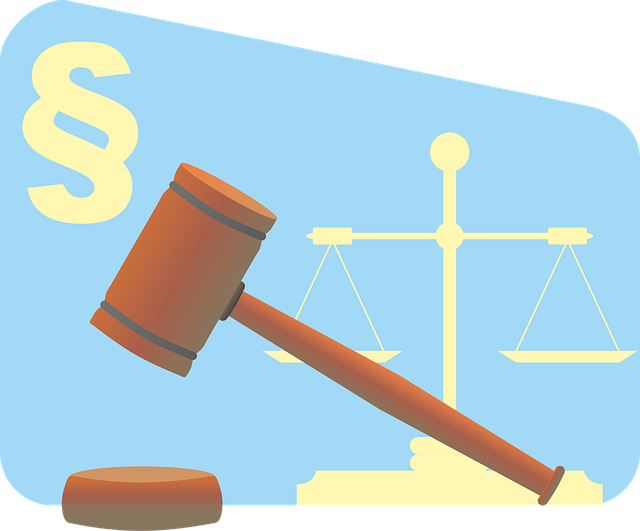Environmental Crime Trials focus on white-collar offenders causing ecological harm through pollution, habitat destruction, and unethical waste management. Defense strategies for these complex cases involve demonstrating due diligence and regulatory compliance to mitigate penalties. White-collar criminals employ intricate schemes, with severe consequences including reputational damage and environmental harm. Mitigating penalties requires a nuanced approach, considering cooperation and individual circumstances. A growing trend leans towards restorative justice, avoiding indictment and encouraging corporate investment in sustainable practices. Alternative sentencing options include complete charge dismissals for substantial environmental remediation efforts, fostering proactive accountability and environmental stewardship.
“Environmental Crime Trials: A Comprehensive Look at Justice and Accountability
As the world grapples with escalating environmental crises, understanding and addressing crimes against nature have become paramount. This article delves into the intricate landscape of Environmental Crime Trials from a legal perspective, exploring key aspects such as defining these trials, motivations behind white-collar offenders, and current punishments. Furthermore, it discusses alternative sentencing methods to mitigate penalties in white-collar crime cases while emphasizing best practices for environmental justice.”
- Defining Environmental Crime Trials: A Legal Perspective
- White-Collar Offenders: Motivations and Consequences
- Current Punishments for Environmental Offenses
- Alternative Sentencing: Reducing Penalties for Change
- Best Practices for Effective Environmental Justice
Defining Environmental Crime Trials: A Legal Perspective

Environmental Crime Trials, a burgeoning legal field, are focused on prosecuting individuals and corporations responsible for environmental harm. These cases, often complex, involve crimes such as pollution, habitat destruction, and unethical waste management, which have severe ecological and societal impacts. From a legal perspective, they present unique challenges and opportunities. Defining these trials involves understanding the intersection of environmental regulations and criminal law.
These proceedings aim to not only hold perpetrators accountable but also mitigate penalties in white-collar crime cases, especially those involving corporate misconduct. A successful defense strategy for a general criminal defense attorney could involve demonstrating due diligence, ensuring transparency, and focusing on regulatory compliance. By achieving extraordinary results, such as avoiding indictment or reducing charges, defendants can minimize the risk of significant financial and reputational damage, while also encouraging proactive environmental stewardship.
White-Collar Offenders: Motivations and Consequences

White-collar offenders often operate under the radar, utilizing sophisticated schemes and complex financial structures to conceal their illicit activities. These individuals, from corporate executives to accountants, are motivated by a desire for wealth accumulation, power, or both. They exploit loopholes in regulations and take advantage of trust positions, making their crimes particularly insidious. The consequences for these offenders can be severe, including significant monetary fines and imprisonment, but the impact extends beyond legal penalties. Damaging company reputations, eroding public trust, and causing long-term environmental harm are also potential fallout from white-collar crime.
In environmental crime trials, mitigating penalties for white-collar offenders is a nuanced process. Lawyers and judges must consider the specific circumstances of each case, including the level of involvement, any cooperation with investigators, and the extent of damage caused. An unprecedented track record of successful prosecutions can also influence sentencing. In rare instances, where defendants provide substantial evidence against their co-conspirators and demonstrate genuine remorse, a complete dismissal of all charges may be considered. This approach aims to balance punishment with the need for truth and justice in these complex cases.
Current Punishments for Environmental Offenses

In many jurisdictions, environmental offenses carry significant penalties, particularly for corporate entities involved in white-collar crime cases. These punishments can include substantial fines, asset seizures, and even imprisonment for executives and owners. However, there is a growing emphasis on mitigating penalties to encourage corporate and individual clients to take responsibility and implement positive changes. The shift towards jury trials in environmental crime cases allows for a more nuanced approach, considering the unique circumstances of each case.
By avoiding indictment and focusing on restorative justice, prosecutors can work with both corporate and individual defendants to develop compliance plans and invest in sustainable practices. This not only serves as a deterrent but also fosters a culture of accountability where businesses take proactive measures to prevent environmental harm. The goal is to balance punishment with reform, ensuring that offenders are held accountable while also encouraging the adoption of environmentally conscious business models.
Alternative Sentencing: Reducing Penalties for Change

In recent years, environmental crime trials have brought attention to the need for alternative sentencing options. Traditional approaches often result in severe penalties, which may not always be proportional to the offense, especially in white-collar crime cases. Mitigating penalties can serve as a powerful incentive for companies and individuals to adopt more sustainable practices and take responsibility for their environmental impact.
One approach gaining traction is offering complete dismissal of all charges in exchange for significant environmental remediation efforts. This strategy not only promotes change but also encourages cooperation from both corporate entities and high-level executives, fostering a sense of accountability within the business community. Moreover, involving philanthropic and political communities in these processes can further drive positive transformations, ensuring that environmental justice is served while exploring innovative ways to reduce the burden on the criminal justice system.
Best Practices for Effective Environmental Justice

Ensuring environmental justice requires a strategic approach that goes beyond legal outcomes. Best practices involve balancing punitive measures with opportunities for redemption. In white-collar crime cases, mitigating penalties can include restitution plans that directly benefit affected communities. This not only compensates for past damages but also fosters trust and encourages proactive environmental stewardship.
Additionally, engaging the respective business, philanthropic, and political communities is vital. Collaborative efforts can lead to innovative solutions, such as green technology adoption, community clean-up initiatives, or educational programs. These actions demonstrate a commitment to environmental restoration and can result in a complete dismissal of all charges for companies that exhibit sincere remorse and take meaningful steps towards environmental justice.
Environmental crime trials play a pivotal role in holding perpetrators accountable and ensuring environmental justice. By understanding the motivations of white-collar offenders, reviewing current punishments, and adopting alternative sentencing practices, it is possible to mitigate penalties while fostering meaningful change. Best practices should focus on comprehensive strategies that balance deterrence with rehabilitation, ultimately leading to a more sustainable and equitable future. Through these efforts, we can navigate the complex landscape of environmental law, addressing offenses effectively while promoting a sense of accountability across all sectors.






